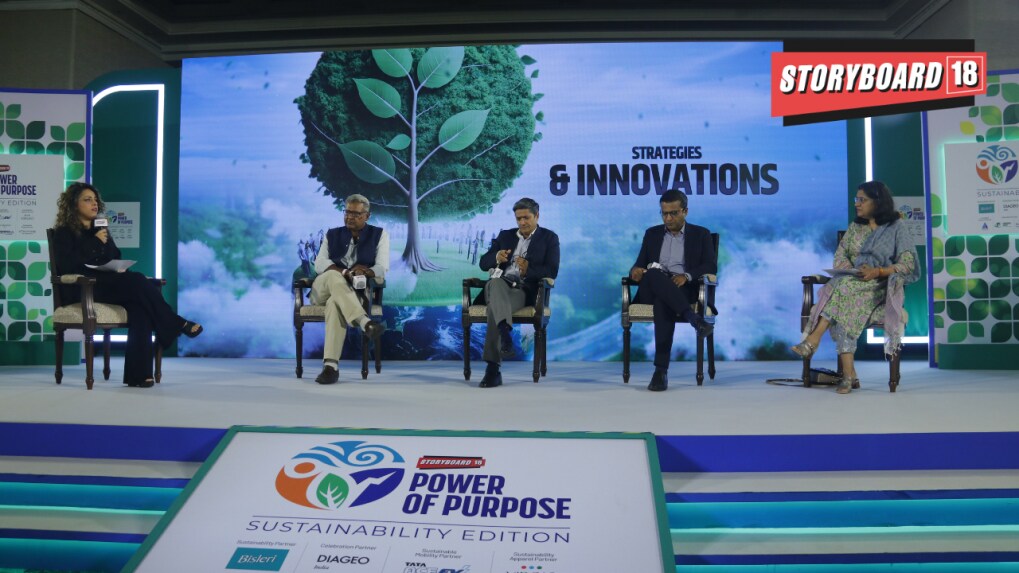Industry leaders discuss India’s road ahead to become net zero by 2030 at Power of Purpose event
Apart from the ecological angle, the panellists also discussed inclusion and gender diversity, as well as the steps needed to make India a developed economy.
ADVERTISEMENT
Sustainability has now been something more than just a buzzword, not only for brands and companies but for the masses as well. The consciousness can be tapped with how the newer generation have not just adapted and accepted but in fact made a way of life. Discussing the theme 'Policy perspective: Sustainable Strategies & Innovations' at the Storyboard18's Power of Purpose event on Friday, October 18, Samit Mitra, managing director, country delivery, India, Global Energy Alliance for People and Planet (GEAPP), said, "I believe that the next generation are practicing what we wanted to do. They practice it on their own, be it by just taking a metro or avoiding crackers and colours in Diwali and Holi, but we feel that they need to do a bit more."
Storyboard18 and Network18 Group recently launched a prominent platform aimed at fostering vital discussions on sustainability and purpose-driven leadership. The inaugural event took place on October 18 in New Delhi, featuring a distinguished lineup of speakers. Notable attendees included Union minister Chirag Paswan, Sanjeev Bikhchandani co-founder and executive vice chairman of InfoEdge), Rohit Kapoor (CEO of Swiggy's Food Marketplace) and Saurabh Kumar (vice president, GEAPP).
Speaking about ‘Viksit Bharat’, Jyoti Vij, the director general of industries body FICCI, said that three or four areas have been identified as crucial for the achievement of the goal of making India a developed economy by 2047. She explained that apart from sustainability, women-led development and the Make in India initiative are important. "A large number of companies have taken the pledge to become net zero by 2030 but there are policy gaps. For this, we need to focus on a few areas, understand why industries work towards achieving their mission and what is that policy constraint that we need to be removed to make that happen," Vij said.
Hisham Mundol, chief advisor of Environmental Defense Fund India Foundation, highlighted that India has a power generation capacity of 195 GW but it is not fully consumed. "Over the next 10 years, we are going to double the size of our economy. There is a real risk that we end up doubling our necessities as well. So the government should start actively pushing for financial incentives for this," he said. He also pointed out that India spends 0.6 per cent of its GDP on research and development, which is lower than what most industrialised countries spend. "The US spends 3 percent, Israel spends 5 percent. There is a reason why most of the innovation comes from such countries. We have to find ways of developing technology and doing more research and development in India," he added.
Chandra Bhushan, CEO of International Forum for Environment, Sustainability & Technology, carried forward that argument: "To turn the system around in 25 years, it will mean disruption in the economy. The question is, are we prepared for this disruption and how will we manage it? So, instead of thinking about the things just as techno-economic problems, we should rather install more renewable energy, more energy efficiency. Systems change by wholesale planning for that system to change."

